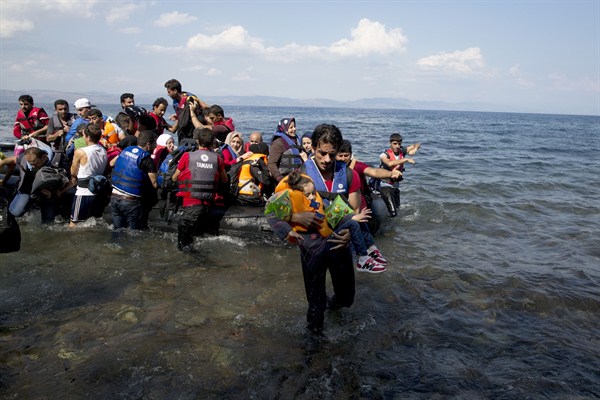The wave of refugees washing over Europe today is the latest distress call from the remnants of what we still, for simplicity’s sake, refer to as Syria. The immediate reaction has been one of panic, with the European Union’s vaunted open borders—symbol of a generation’s worth of hard-won European integration—now at risk.
There is much to criticize in the official and popular reactions in Europe. The flow of migrants from the Middle East, North Africa and Afghanistan has been building over a long enough time for the EU to have formulated a more effective response.
But the shift in routes and the spike in the number of people entering Europe this year illustrates that the nature of the problem has changed from a migration crisis to a refugee crisis. As such, it will be impossible to address the symptoms of the crisis in Europe without also addressing its causes at the source: the bloodletting in Syria and the destabilization of the broader Middle East.

